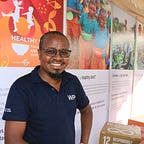A plate of food amidst mourning
Family describe desperate plight after being forced from home
There are over 800 internally displaced persons (IDPs) living in Qare kebele, eastern Ethiopia, in the middle of expansive farmland. Most were displaced from Jigjiga area in the Somali Region and others come from the Oromia-Somali regional border.
They are here because originally their families came from this area. Saada Mohammed Rashid is here because her husband has a distant relative in the area.
The IDPs live among farmers but they do not own any land — even the space where they have put up their huts is only loaned to them.
Married in the ‘wrong’ area
Saada is in her twenties but does not know her exact age, like many people in rural Ethiopia. She has two children aged 1 and 2.
Saada used to live in the city of Kebribeyah and made money cleaning homes and washing clothes while her husband worked on construction sites. Life was not rosy but they both made some money and were able to put food on the table.
Saada is a Somali married to a man from the Oromo group, and when inter-communal clashes began last year they were forced to flee their home.
“I don’t want to return to Kebribeyah,” she says. “I’m still afraid. They did bad things to us.”
Desperation
“In Qare, life is much harder,” Saada says.
“I try to grow some maize in the small space next the house, but I barely harvest anything,” she says. “I rely on the food from the UN and it doesn’t last us long.”
Saada and her family are living in a compound of two huts. About 10 people live here altogether.
“We do not have water,” she says. “Sometimes I have to stay almost a whole night at the only water point waiting in line as the water trickles very slowly — and I still have to pay one birr [3 US cents] per jerrycan.”
“I haven’t eaten anything today,” she says. “I have no food in the house — I’m waiting for the next food rations. My neighbours gave me some flour and I made porridge for the children, otherwise, we would all be starving.”
Empty cans of vegetable oil from WFP are in one corner, a container that previously contained some flour hanging off the wall, and an empty cooking pan that still sits on the dead fireplace are the only signs that Saada had some food at some point.
There are crumbs of what was injera on the pan, the last meal that Saada prepared two days ago.
Mourning for a plate of food
Saada’s husband doesn’t have any work. They both look for work in the farmlands — often in exchange for some food.
Today, there is a family that is mourning in a nearby village. Saada’s husband has gone to that family’s homestead.
“I’m also going there,” she says, “so that I can eat some food.”
In the Oromo language, the meal served to mourners is called shumo, or nefro in Amharic. Neighbours contribute the grain, commonly a mix of chickpeas and wheat or maize, and they eat together with the mourning family.
Saada’s hope for a meal today is the death of a villager.
“If the UN stopped giving us food, we will have no other way of feeding ourselves,” she says. “We can only wait on Allah.”
In East and West Hararghe zones, WFP has been reaching almost 400,000 IDPs and returnees with food rations comprising cereals, pulses and vegetable oil every month. Across the country, WFP has assisted over 1 million IDPs and returnees in Somali, Oromia, Benishangul-Gumuz and Southern Nations Nationalities and Peoples’ Region. Fortified foods are provided to over 111,000 children and pregnant and breastfeeding women through targeted supplementary feeding.
This is part of WFP’s contribution to Ethiopia’s Humanitarian Response Plan. This critical lifesaving assistance is facing severe funding shortfalls. The nutrition support currently has a six-month shortfall (July to December) of US$49 million while the relief operation has a gap of US$79 million.
Click here to learn more about WFP’s work in Ethiopia.
